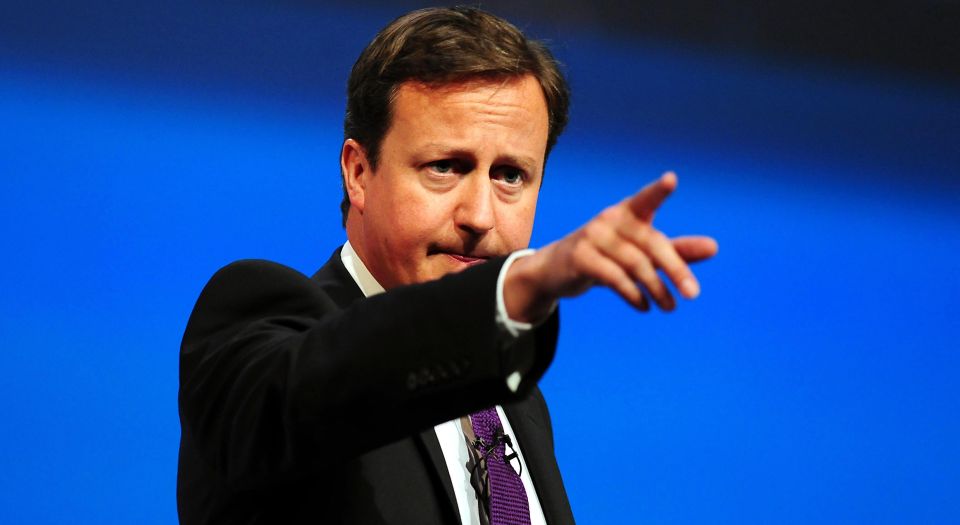Anti-terror: the perversion of tolerance
Cameron’s crackdown on extremists will destroy freedom, not protect it.

The announcement by prime minister David Cameron today that a new counter-extremism bill is to form part of the Queen’s Speech on 27 May, providing the authorities with new powers to tackle terrorism, confirms that, as early as the first week of his new government, all pretence at inspiring and engaging has been set aside in favour of legislating and coercing.
When home secretary Theresa May told the BBC Radio 4 Today programme that she wanted to ‘bring people together to ensure we are living together as one society’, she omitted to say that this ‘bringing together’ is to be made mandatory, with severe penalties for those who will not comply with what the authorities define as British values.
The window for free speech has now been firmly shut just a few months after so many political leaders walked in supposed solidarity for murdered cartoonists in France. Yet, it was only just over 200 years ago that the very British poet William Wordsworth, observing the spirit of liberty that had just been unleashed in France, exclaimed: ‘Bliss was it in that dawn to be alive, but to be young was very heaven!’
Today, we face the twilight of freedom, and to be young is to be cowed and scrutinised, as the government implicitly reveals that it has given up on trying to understand the reasons why growing numbers of youths are disengaged from society, leading at the margins to the vexatious violence of a small minority. Interception and incarceration are to be the bold new vision for the future of Britain.
Most strikingly of all, the BBC reports that May will tell the National Security Council that the government will empower institutions to ‘challenge bigotry and ignorance’. Lest we forget, it was only five years ago that the previous PM, Gordon Brown, castigated a traditional Labour voter as a bigot. And, presumably, old-fashioned Church of England adherents opposed to gay marriage on principled religious grounds will also face the need to be re-programmed under Cameron’s new regime, just as much as the many who don’t know their Sunni from their Shia?
Cameron states that for too long ‘we have been a passively tolerant society’ and is presumably ‘pumped-up’ at the possibility of actively changing this image. But, in truth, Britain has strayed a long way from the Enlightenment conceptualisation of tolerance, which advocated robust engagement with others over matters of principle while recognising and accepting the need to live side-by-side.
In recent years, British society has become not tolerant but indifferent to the mores of others, preferring to turn a blind eye to outlooks and activities deemed not too threatening. You can believe anything you like, so long as you don’t believe in it too much, has been the unstated outlook of the authorities. Now, Cameron seeks to shift gear from passive indifference to active authoritarianism.
Of course, deep down, neither Cameron, May nor any other person in power truly believes that this approach can work. At best, it is a form of containment. And, as the security services know full-well, there can be no security solutions to social problems. Their capacity is already fully stretched monitoring the active few. Presumably, then, our ignorance is to be challenged by local authority-led training workshops?
What this will achieve, though, is to mandate bad faith across society. The government legislates to be seen to be Doing Something. Institutions and individuals will act and speak accordingly – to be seen to be in compliance. No wonder so many voted Tory without telling the pollsters; to say what you really think is no longer a constituent of British values.
Meanwhile, a generation of young people in search of purpose and meaning in their lives, looking for something to believe in, will find this in all manner of bizarre and, sadly, occasionally twisted avenues. It is not ideas on the internet that radicalise. To presume so is to view people as mindless sponges. Rather, it is the gaping hole at the heart of where real values ought to be that these young people actively seek to fill – a hole best exemplified through the recent election, where no party sought to provide any strategic or principled vision for society.
Sadly, it really is through the prism of an authoritarian form of child protection that the government now views the populace, and especially the young. Successive heads of MI5 have alluded to how these people are ‘vulnerable’ and ‘groomed’ online by vicious malcontents. While feeding off and into contemporary anxieties and fears of paedophiles, this formulation also presents the next generation (who, oddly it would seem, manage to get to Syria quite easily) as lacking any agency, autonomy and – inadvertently perhaps – accountability for their actions.
A far more useful approach would have been to challenge the therapeutic culture that has now infected our education system – a culture where children are taught from kindergarten on that their feelings are sacrosanct and that having their personal beliefs challenged is a form of offence. It is a culture that has spread right through society leading to a situation where the impulse to ban ideas and activities that some find unacceptable has become the mainstream solution. In his announcement today, Cameron has shown that the government now best exemplifies this new and dangerous trend.
Bill Durodié is chair of international relations at the University of Bath.
To enquire about republishing spiked’s content, a right to reply or to request a correction, please contact the managing editor, Viv Regan.








Comments
Want to join the conversation?
Only spiked supporters and patrons, who donate regularly to us, can comment on our articles.